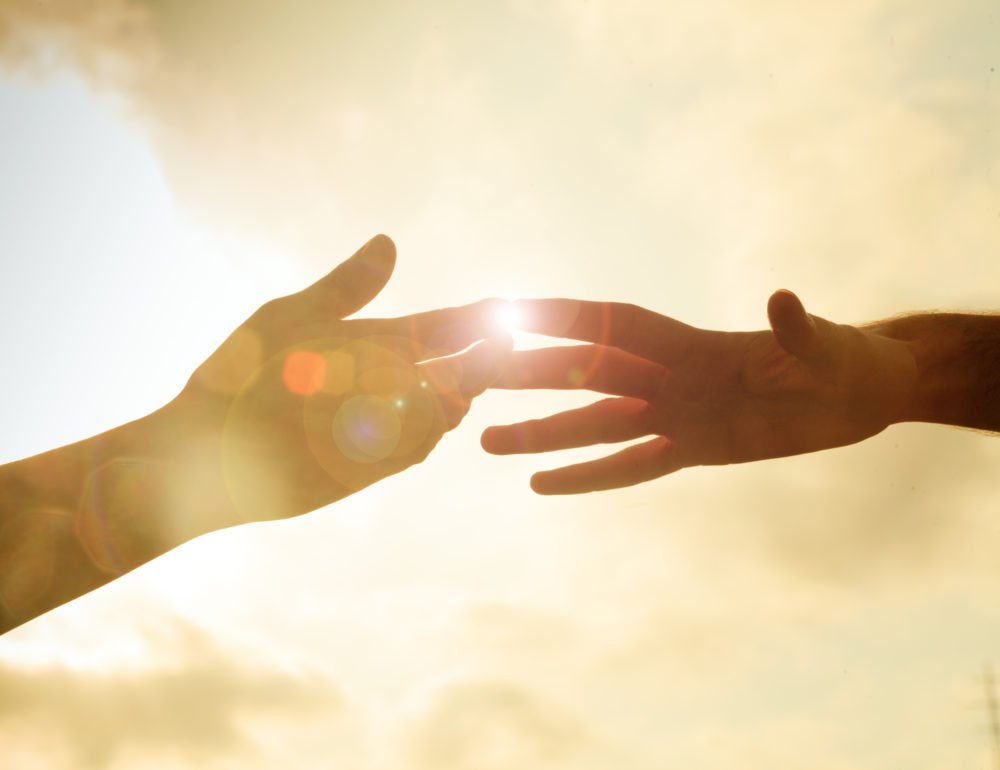I ran to the altar to confess to God what I’d done. The clothes in my suitcase still had sand in them from the beach vacation with a man I called my friend, but who was really my boyfriend…for 5 years. Tears running down my face, thinking I could ugly cry my way back into God’s graces, I pleaded for forgiveness and relief.
My days felt chaotically ambivalent: loving who I was at one moment, only to turn around and hate myself the next. I stabilized life with tiny compartments. In one compartment was the wanting-to-come-out, bar hopping, vodka drinking, drunk driving, lost and scared part of myself. Another compartment held the hopeless and dirty sinner that fasted two meals a day, went to church, prayed silently any time a hot man walked by, and the one who agreed to move from New York City to straighten up (pun intended) by becoming a cloistered seminary student.
Living a double lifestyle was my expertise, for a little while, at least. When my drinking hit an all-time high and my change in orientation wasn’t happening, I realized I had to take a deep look at who I was and what I believed.
The journey from conservative Evangelicalism and self-denial to self-acceptance and LGBTQIA+-affirming theology was rigorous and bumpy. At the time, queer Christians like me had few resources. Though times and resources have changed, here are the major keystones I summited along my journey:
1. Identify Your Level of Spiritual Development
Psychology may be known for its research on mental development, but some psychologists also study spiritual development. Authors like Ken Wilber and James Fowler have created developmental models that offer an understanding of how we grow and evolve spiritually.
Our earliest encounters with the Bible typically lead us to take its symbolic descriptions and mythic poetry literally. As we grow, we experience changes in perspective, understanding and interpretation of the Bible and God. As we integrate deeper ways of understanding and interacting with God and religion, we can tolerate greater paradox and expanding practices and experiences of love.
Studying the work of authors like Ken Wilber (one of my favorites) helped me understand where I was on the spiritual journey and how my lack of development kept me from becoming more of a mature spiritual person. Taking the leap from one layer of development to the next, not only strengthened my ability to grow as a spiritual being, but also in my sophistication to understand Scripture and God. It was growing spiritually that allowed me to grow internally and relationally.
2. Take Charge of Your Own Spiritual Development & Spiritual Maturity
Up until the time I was ready to make a self-changing difference, I had allowed others to tell me what to believe, trusting the man on the altar. I never questioned his perspectives, his interpretations of the Bible, and his level of spiritual maturity. I believed what he believed because everyone in my church believed it.
Taking ownership of my spiritual journey and caring for my blossoming spiritual maturity was a new skill I had to learn to perfect. I spent several hours researching theological perspectives, watching LGBTQIA+-affirming Christians on YouTube and listening to gay-Christian podcasts. I even started visiting a church that openly welcomed queer people, not only into their pews as participants but onto the staff as leaders with gifts to share.
All in all, it was important for me to figure out what I believe, and why I believed it! Struggling to figure out what you believe and why? Let us help.
3. Learn How to Trust God More Than Men
One of the most important facets that nurtured trust more than anything was my approach to prayer. I stopped asking God for change, and curbed the habit of approaching God as though God wanted something different for my life, my being. Leaving behind the pattern of trusting men to tell me about God, I started asking God what God thought about me. What I learned in those moments wasn’t purely a cognitive lesson to grasp, but an internal experience to trust, to trust God full-heartedly.
As I felt more and more loved for who I was, rather than who I could become, I had to confront the challenge of trusting God’s feedback. I had to trust God as I embraced by sexual orientation. I had to trust that when I experienced deep love with someone, it didn’t disappoint God. I practiced trusting that when I felt the yearnings, the strong yearnings, to give and receive affection from someone of the same gender, God would not only be okay with it, but that it was good.
Needless to say, learning how to trust God with every fiber of my being was way harder than trusting men’s understanding of God.
Eventually I came to both the deep cognitive and experiential understandings that I could be gay and Christian, not because culture taught me so, but because I believed in God’s love for me. I had heard about that unconditional love, but it took me 2 years before I experienced in every part of my self, not just in some of the compartments.
Are you ready to start your journey? Get in touch today.


